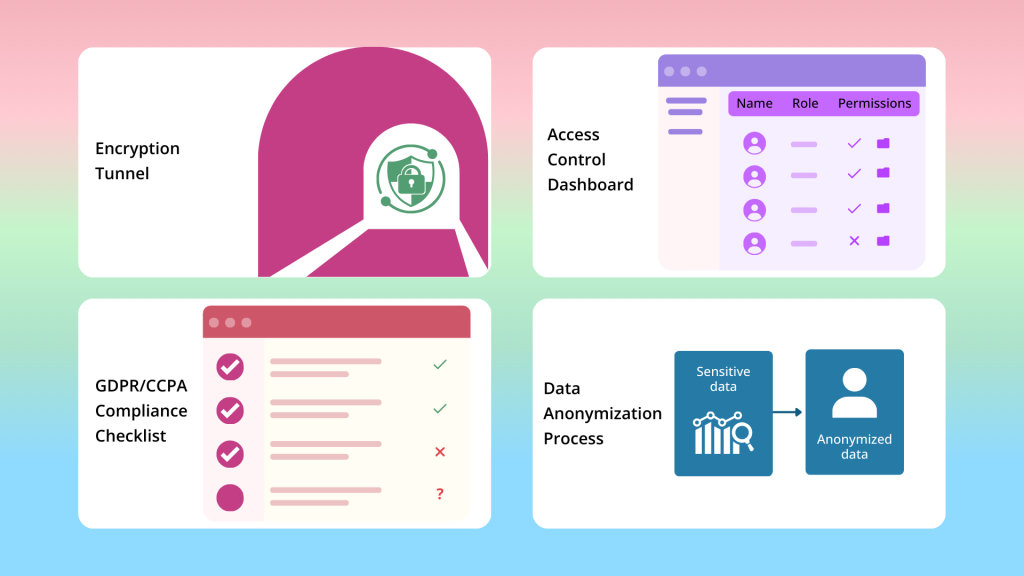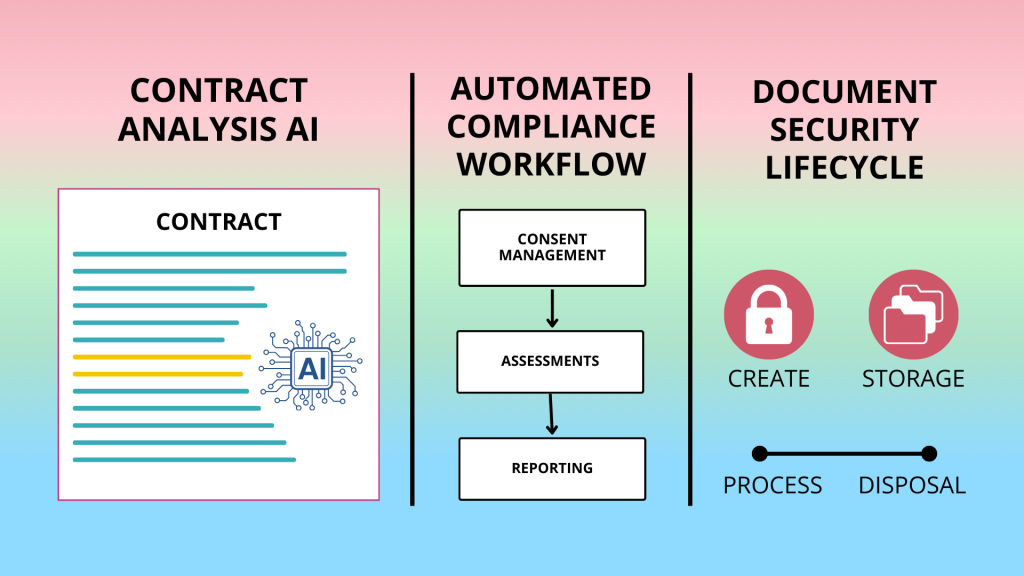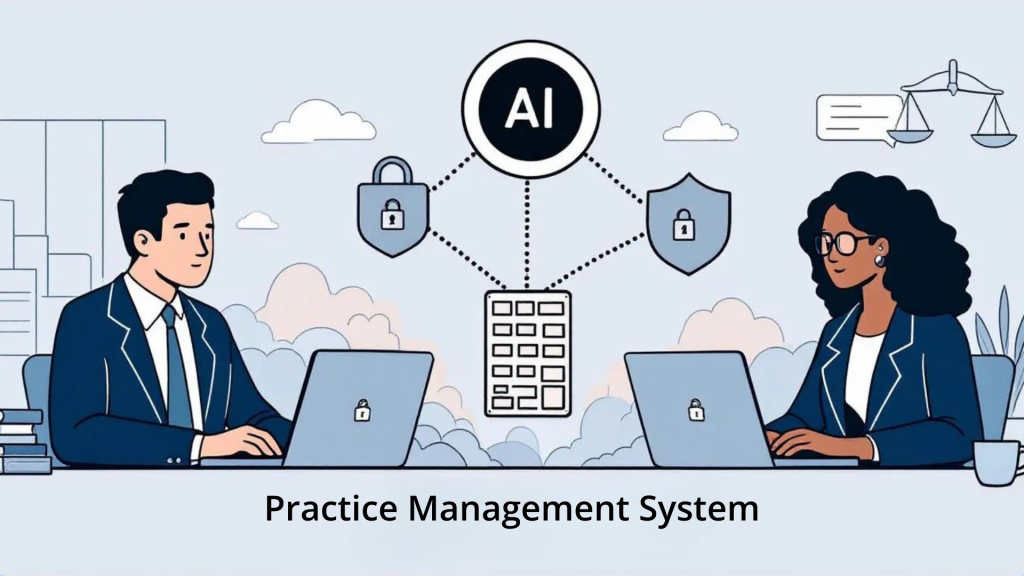We all know by now that technology is no longer just a luxury for law firms; it’s becoming essential. A recent survey reveals that 72% of solo legal practitioners and 67% of small firm professionals are using AI in their day-to-day operations. Imagine that! By incorporating AI into their workflow, these legal professionals are freeing up an average of 5 hours a week. This means they can better handle sensitive legal data while beefing up security and keeping an eye on compliance. But here’s the surprising bit: despite knowing the benefits, only 22% of law firms have a solid AI strategy in place by 2025. As sad as it sounds, having a game plan for AI is key to truly using its magic for security and compliance.
AI is being developed specifically for law firms to ensure that data privacy is strong and compliance is top-notch. This is huge for small and medium-sized practices, making it easier for them to manage sensitive legal information and address major concerns like client confidentiality and legal risks. For decision-makers in SMEs, adopting AI isn’t just smart—it’s necessary. Let’s look at some of the ways AI agents can safeguard client data and uphold privacy for small to medium law firms.
The Increasing Need for Data Privacy in Legal AI

Let’s face it, in the legal field, client confidentiality is more than just a nice thing to do—it’s a must. With everything going digital faster than you can say “legal document,” firms are facing some real hurdles, like
- Dealing with a mountain of legal paperwork and communication.
- Quickly adapting to ever-changing privacy laws, think GDPR, CCPA, and the like.
- Keeping their defenses up against breaches that could hurt their reputation and bottom line.
The cool part? AI tools for legal work are stepping up with some pretty impressive security features that include:
- Full-on encryption for both documents and communication, making sure everything is locked down.
- Access controls that are user-specific; only the right people see sensitive stuff.
- Options for automatic anonymization and secure storage, whether it’s on-premise or in the cloud—whatever fits the firm’s needs while ticking all the regulatory boxes.
Compliance Automation: How AI Keeps You on the Right Side of the Law

Now, here’s where AI really shines, helping SMEs stay compliant by taking the wheel on those high-stakes, routine tasks that can be a bit too risky for humans to handle:
- Contract analysis: Think of AI tools that can spot privacy clauses, data retention rules, and regulatory responsibilities, saving time and cutting down on mistakes.
- Consent and data management: Platforms are doing the heavy lifting here by automating privacy assessments, handling client consent, and making compliance reporting a breeze for laws like GDPR or CCPA.
- Secure document management: These tools are all about anonymizing client data before it gets processed, which checks both legal and client boxes when it comes to keeping things private.
For small and medium-sized law firms, all this tech means:
- Less paperwork and stress for lawyers.
- Quick updates on compliance status, which lowers the chances of those costly breaches.
Easing Decision Maker Worries: Risk and Trust
When it comes down to it, AI is most useful in legal practice when there’s solid governance in place:
- Transparent algorithms: AI that makes sense! Explainable AI helps firms and clients understand what’s happening with decisions, building trust in how automated processes handle critical issues.
- Routine fairness audits: Good solutions get regular check-ups to sniff out and fix biases, aiding in fair outcomes and lowering compliance risks from any discriminatory practices.
- Client communication: Keeping clients in the loop about how and when AI is being used—and when human experts are in the mix—creates trust and keeps ethical vibes strong.
Integration and Workflow: Keeping Security Intact

When looking for a balance, efficiency shouldn’t sacrifice privacy. The leading tools now seamlessly mesh with practice management software, covering things like
- Safe collaboration for remote teams, thanks to encrypted document stores and secure access.
- Real-time threat detection through AI-driven cybersecurity, with automatic reactions and monitoring to keep things under wraps and avoid data breaches.
- Flexible solutions that can expand with the firm, allowing for international cases and different languages while keeping in line with privacy norms from around the globe.
Key Takeaways for SMEs
Smart AI tools can chop down on legal paperwork and compliance time by nearly 80%, while keeping accuracy rates over 95% for everything that’s clear and above board.
- Strong data security measures—like encryption, anonymization, and access control—are absolutely essential for firms dealing with sensitive matters.
- Automated compliance management makes it easy to lower risks, streamline audits, and adapt to the latest regulations.
- Setting clear guidelines on AI, being open with clients, and providing consistent security updates is crucial to keeping that balance between being efficient and responsible.
In short, AI for small and medium law firms is more than just a tool. It’s transforming issues of privacy and compliance into a strong benefit, assuming leaders pick carefully vetted solutions that are all about security and transparency. This shift helps legal teams deliver speedy, precise results without putting client secrets, trust, or their regulatory status in jeopardy.
